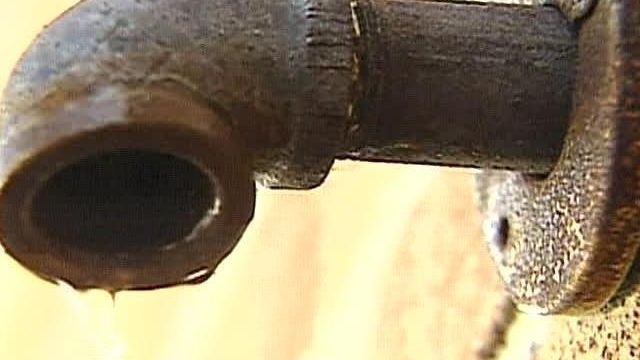Panel Probes Claims Camp Lejeune Water Caused Health Problems
Former residents claim contaminated well water at Camp Lejeune led to miscarriages, birth defects and cancer. A panel is looking for scientific evidence to link exposure to health problems.
Posted — Updated"We are not numbers in a study. We are human beings that have had great tragedies," said Mary Freshwater, a former Lejeune resident. She said the contamination caused the deaths of two of her children, as well as her health problems.
Base officials do not deny that solvents from ABC One Hour Cleaners contaminated several wells across the street from the Tarawa Terrace I base housing complex. Officials closed the wells in 1987 after 30 years' of use, but say they are not convinced the contamination caused health problems.
Residents from the period of possible contamination spoke to the National Research Council Committee on Contaminated Drinking Water at Camp Lejeune. The committee is made up of experts from across the country specializing in a variety of fields from groundwater contamination to health and science issues.
"We have been unjustly contaminated, resulting in a disease that threatens to shorten our lives," Chris Thomas, a former resident, said.
Many said they believe exposure to the water led to miscarriages, birth defects and cancer. Cindy Crib said the water sickened three of her four children, and Jeff Byron said his daughter suffers from multiple birth defects and learning and developmental disabilities.
Panel members also visited contaminated sites on base. They said their probe, still in its investigative stage, will concentrate on the science, but the interviews revealed the level of concern surrounding the issue.
"Certainly, it's important in providing a context, that is, the level of concern, the long-standing nature of the concern," Dr. Dave Suavity, chairman of the committee, said.
Former residents also questioned Camp Lejeune's handling of the situation.
"Why didn't they put out a report saying not to drink the water?" Hill said. "I want to know why."
"I want acknowledgment, and I want, 'I'm sorry," Freshwater said. During the hearings, she held up a blue onsie she said her infant wore when he died.
Camp Lejeune officials said they hope the study will shed new light on exactly what the water contamination could and could not have done.
"It's our desire right now to bring in as many experts as we can to take a look at the water situation," spokesman Maj. Nat Fay said.
In July, base officials notified residents of nearly 900 homes that testing was under way to determine whether a plume of chemicals had seeped through the ground to further contaminate water supplies and send vapors into buildings.
Data from the monitoring wells shows "that the plume of contamination from the ABC site does not extend beneath Tarawa Terrace Elementary School or housing area and is therefore not capable of generating a soil vapor intrusion concern," the statement said.
Another round of sampling on Aug. 1 included air at the elementary school and two unoccupied homes. Federal environmental officials said they found no chemical contamination under a school and houses used by military families at Camp Lejeune.
For their part, the Marines insist they followed environmental and health regulations in place at the time.
Nearly 900 people have already filed suit against the U.S. Pentagon, but that number could increase if researchers find a direct connection between the water and the illnesses.
Researchers said the study will be a challenge, considering it comes more than 20 years after the fact. In September, the U.S. Senate approved a measure that requires the military to personally inform anyone who could have been exposed.
Suavity said he expects the committee to release a report by late 2008.
• Credits
Copyright 2024 by WRAL.com and the Associated Press. All rights reserved. This material may not be published, broadcast, rewritten or redistributed.






